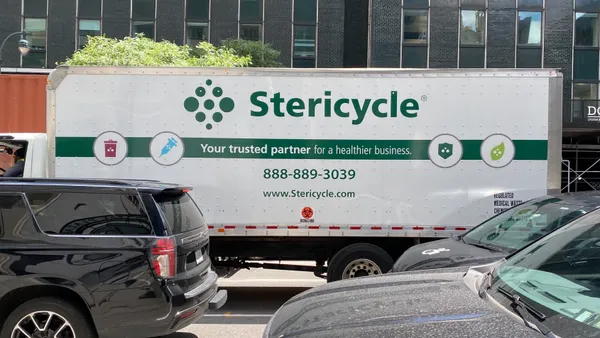Dive Brief:
- The frequency of curbside recycling collection in Nashville will increase from once a month to every other week, according to Nashville Public Radio.
- Metro Nashville Public Works (Metro) will offer the expanded service to an estimated 140,000 residents thanks to city funds, a $2.36 million grant from the Tennessee Department of Environment and Conservation and other outside grants.
- Metro intends to purchase 16 collection vehicles (10 side-loaders, 6 rear-loaders) and hire 13 new staff to run the routes. The expanded services are set to fully roll out by early next year.
Dive Insight:
Nashville leaders have tried for years to find ways to meet citizens' growing calls for additional recycling services, making another hard push in 2018. Leaders say the service expansion was only made possible by multiple grant opportunities they discovered.
The curbside program expansion comes at an interesting time, considering some cities across the country are ending, reducing or drastically altering curbside programs due to unfavorable market conditions brought on by China's material import ban. Deltona, Florida and Oregon, Ohio are among the cities that have resorted to suspension, with the hope that conditions will improve and service can resume some day.
Nashville's curbside service expansion is also notable in light of the city's decision last month to scrap its pilot program to recover more glass from downtown bars and music venues. Similar to a growing number of cities, Metro doesn't accept glass in residential curbside containers because of transportation costs and cross-contamination concerns. City leaders had hoped that a program to collect the material in areas where it is heavily generated could make glass recycling economical, and even profitable, but separation and collection challenges prompted the city to revert to using drop-off depots.
In addition to curbside service expansion, Nashville reportedly wants to improve recovered material quality through contamination reduction. The city has stepped up educational campaigns, including leaving "oops" tags on bins containing incorrect items to help citizens get better at material separation. Mayor David Briley has also said food waste is a priority, and the city has previously partnered with the Natural Resources Defense Council on the issue.
Nashville is currently working toward a goal of 35% landfill diversion by 2020 and "zero waste" by 2050.










